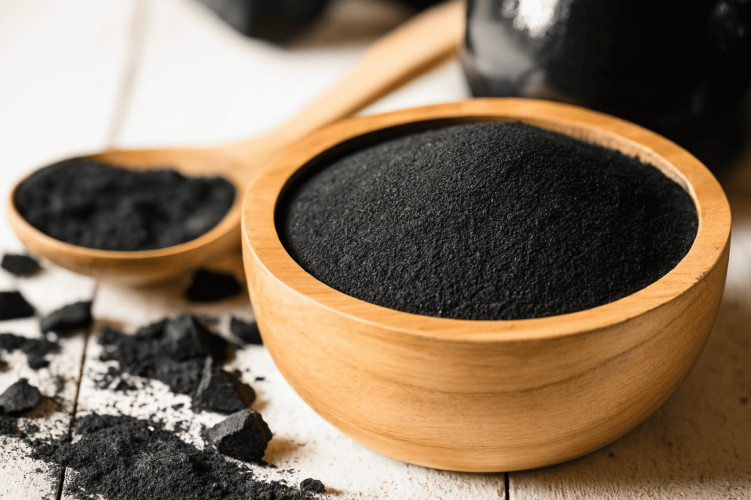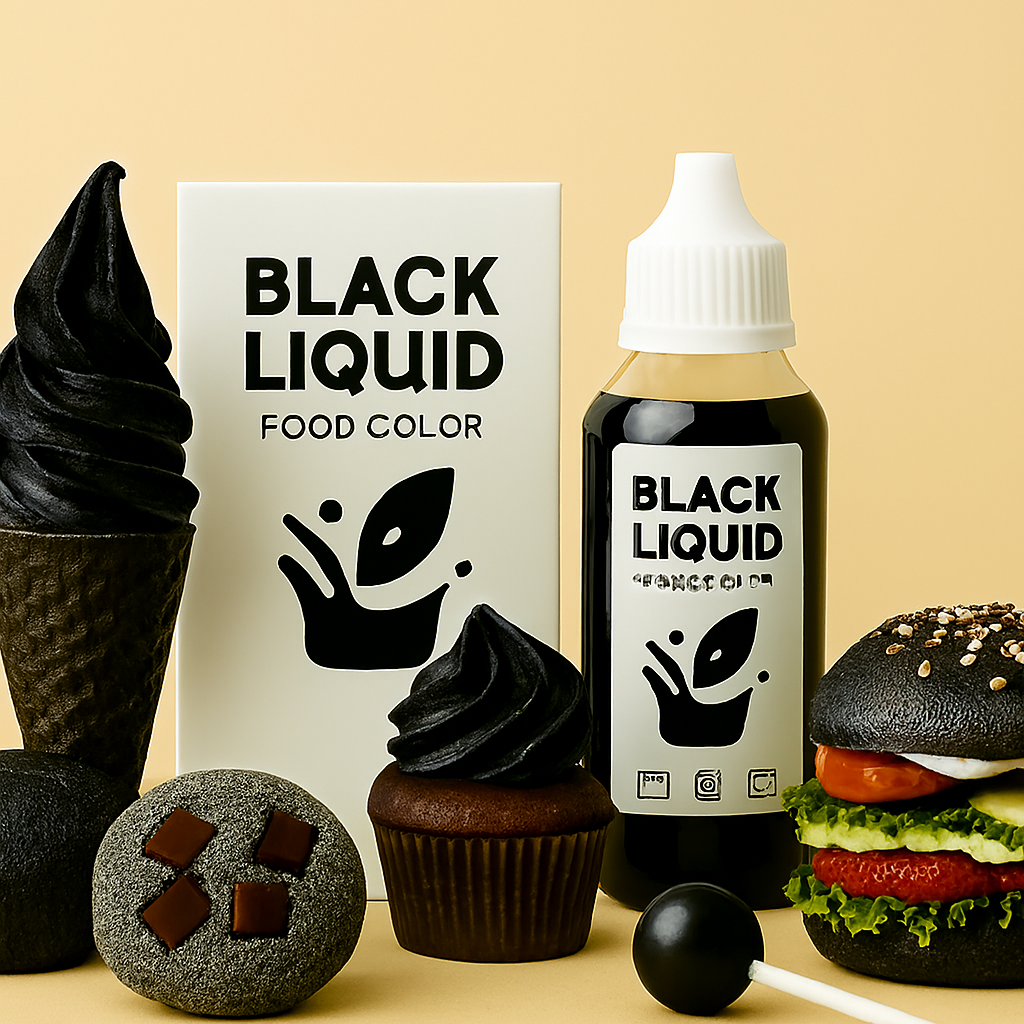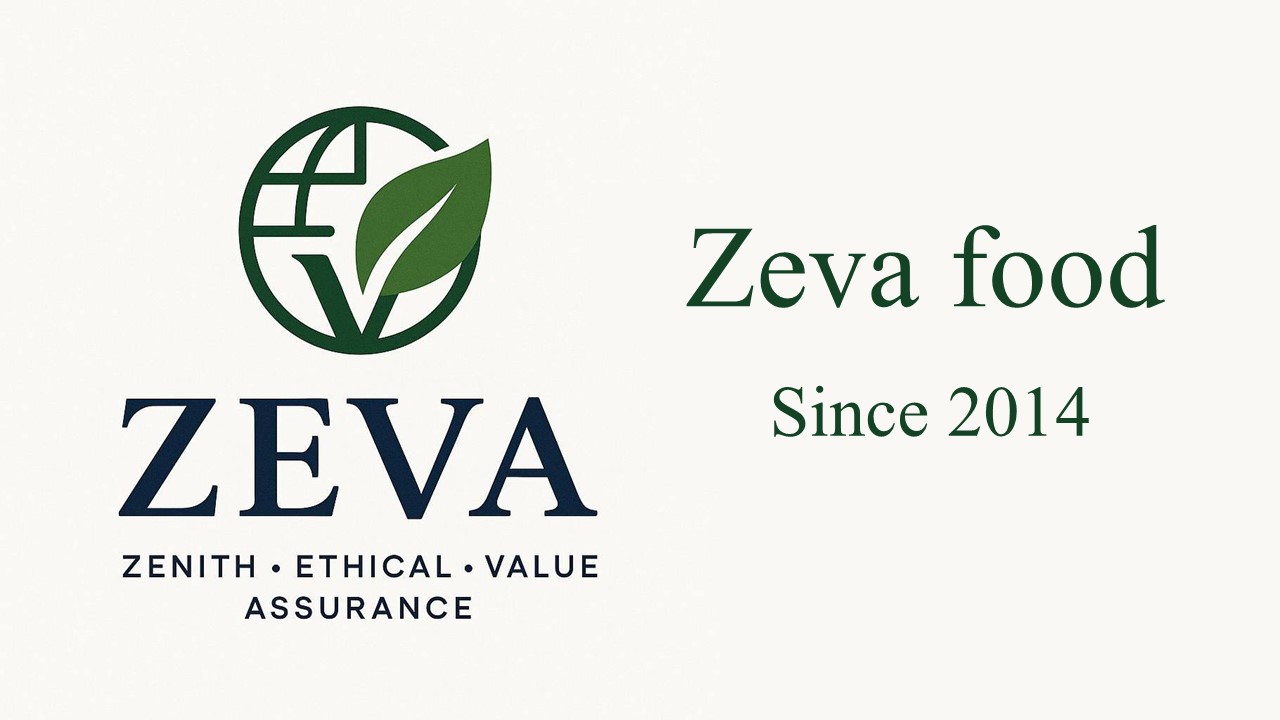Carbon Black
Carbon-Based Natural Black Food Color (E153): Deep, Stable, and Export-Ready
Carbon Black is a natural black food color made from plant-based materials through a clean carbonization process. As a result, it delivers a deep, intense black hue with subtle smoky undertones, creating bold visual contrast across a wide range of foods and beverages. Furthermore, its stability allows this natural pigment to perform reliably in baking, confectionery, and beverage applications, making it ideal for products where appearance and visual depth matter.

Origin and Composition of Natural Carbon Black Food Color
Manufacturers obtain this natural pigment by carbonizing renewable plant sources, producing a fine carbon pigment free from artificial additives. Consequently, its pure botanical origin ensures consistent performance and compatibility with clean-label formulations, offering a sustainable alternative to synthetic black dyes.
Health and Functional Benefits of Natural Carbon Black Food Color
Natural Carbon Black provides both functional performance and consumer-friendly advantages:
- High heat and light stability – maintains color during cooking and storage.
- Strong coloring power – achieves deep black tones at low dosage.
- Neutral taste and aroma – blends easily into any recipe.
- Safe and natural origin – supports clean-label product development.
Applications of Natural Carbon Black Food Color Across the Food Industry
Carbon Black (Liquid) finds widespread use in:
- Bakery: dark bread, black croissants, cookies, cake decorations
- Confectionery: black gummies, licorice, coated candies
- Ice Cream & Desserts: charcoal ice cream, dark mousse, frozen desserts
- Beverages: dark smoothies, cocktails, novelty drinks
- Savory Foods: burger buns, pasta, sauces
- Snacks: chips, coated nuts, extruded snacks

Regulatory and Technical Information
In the European Union and many international markets, regulators approve Carbon Black as a natural color additive under the code E153. Moreover, it meets food-grade quality standards and proves safe for use within the recommended dosage limits. Because manufacturers derive it from controlled carbonization of plant-based materials, it provides a deep black tone with excellent stability, making it a reliable and compliant option for natural food coloring applications.
| Property | Description |
|---|---|
| Active pigment | Natural carbon pigment |
| Solubility | Water-dispersible |
| Recommended dosage | 0.05% – 0.5% (depending on application) |
| Heat stability | High |
| Light stability | Excellent |
| Shelf life | 12 – 24 months (cool, dry conditions) |
| Packaging | Food-grade HDPE bottles or drums |
Comparison with Synthetic Colors
Unlike synthetic black dyes, natural Carbon Black delivers authentic depth and purity with a plant-based, chemical-free composition. In addition, it combines visual intensity, safety, and sustainability, meeting consumer demand for clean-label, naturally colored foods without compromising performance or shelf life.
Sustainability and Clean-Label Advantage
Manufacturers produce this pigment from renewable botanical materials, which reflects a commitment to eco-friendly production and transparent labeling. Therefore, its natural composition supports sustainable manufacturing and enhances consumer trust, offering brands a modern, responsible coloring solution.
Export and Supply
Carbon Black (No. CB-01) comes in liquid form for easy application across various industries. Additionally, producers package it in secure, food-grade containers and make it available for global distribution, serving manufacturers who value natural color performance and clean-label integrity.
